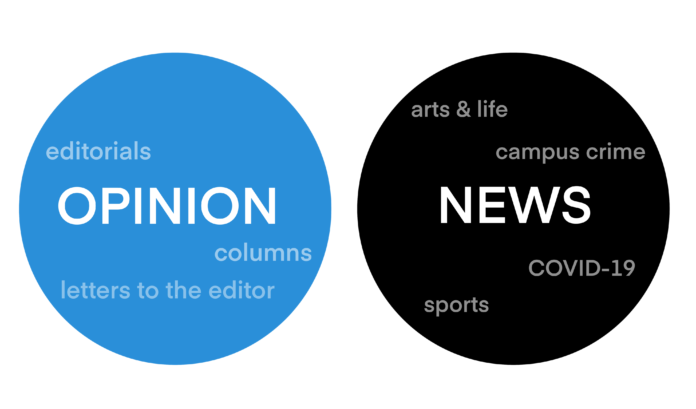Journalism is very important. It’s known as the fourth estate for a reason, but for that to matter, people need to understand what is printed and what it means.
The most unfortunate thing about journalism is that people don’t learn about it unless they seek it out. That’s why journalists need to do a better job of explaining the things they write.
Editorial Board
An editorial board at a major newspaper is made up of members of the opinion department who are experts in a particular field. They make the decisions for what editorials are run by the paper, and they are an important voice that the paper may wield.
It is not, however, the decision maker for the entire paper. The editorial board does not decide what news stories are run or the voice of the news as a whole. It is an isolated group that focuses on the opinions they feel the outlet should publish.
That being said, The Lariat is a small publication, and it doesn’t have the resources to have an independent editorial board. The Lariat’s board is made up of different editors from the paper that change each semester.
Right now, it includes the Editor-in-Chief, the Opinion Editor, the Arts and Life Editor, the News Editor, the Copy Desk Chief and the Copy Editor.
Editorials
The voice of the editorial board. They belong in the Opinion Section. The editorial board meets weekly to decide what editorials will be published, and who will write each one.
Even though they are normally written by one person, they are written under the guise of the publication because they are the opinion of the entire editorial board.
They are heavily researched, and they don’t make baseless claims. Every opinion is backed by numbers and quotes.
Front-page editorials, like the one posted on Monday, keep the administration or government accountable. The utmost thought is put into any article that puts so much pressure on any entity, and it is no different at The Lariat.
Editorials do not necessarily reflect the opinion of the entire institution; just the editorial board. But, the editorial board is chosen to think through their opinions with careful consideration.
Opinion Section
The opinion section is similar to the editorial board, but generally less critical. At larger publications, writers, who are not part of the news section, put their opinions to paper, no matter how controversial or loveable.
At the Lariat, writers from across the publication write columns, an individual piece by an individual writer. They range from serious topics like politics, to less serious subjects like fuzzy socks.
Letters to the Editor also belong in the opinion section. They are the opinions of people not affiliated with the outlet to be sent in for publication. To send one in to The Lariat, go here.
News Section
The news. Plain and simple. This is where the reporting done by writers goes. This section is the lifeblood of the outlet, and it’s what gives the publication its credibility.
Writers don’t include their opinion in news pieces. That’s for the opinion section. News is for information to be relayed to the public; the good and the bad.
Anonymous Sources
Sources are given anonymity to protect them from losing their job or something as harmful as that. It is not a willy-nilly decision — normally it has to be approved by multiple editors before an anonymous source can go in the story.
Sources reach anonymity by asking to go off the record. A few things to note about going off the record:
It’s not guaranteed. Journalists can say no if there isn’t a good reason. If it’s a serious enough topic, journalists can even violate an off the record promise if they feel the information is important enough (that has to be an incredibly high bar though). It’s important to note, journalists can violate the promise without breaking the law.
Journalism is important, and to understand it, knowing these terms is an important step. After that, just read the articles, and if you have problems with what you read, provide your constructive criticism.
Clarification: September, 11, 2020.
While there is no legal precedent that could prosecute a journalist for violating the promise of anonymity, in almost every circumstance it is highly unethical, and journalists have a history of facing prosecution for refusing to reveal anonymous sources. The members of the Baylor Lariat’s editorial board strongly believe in protecting their sources.





